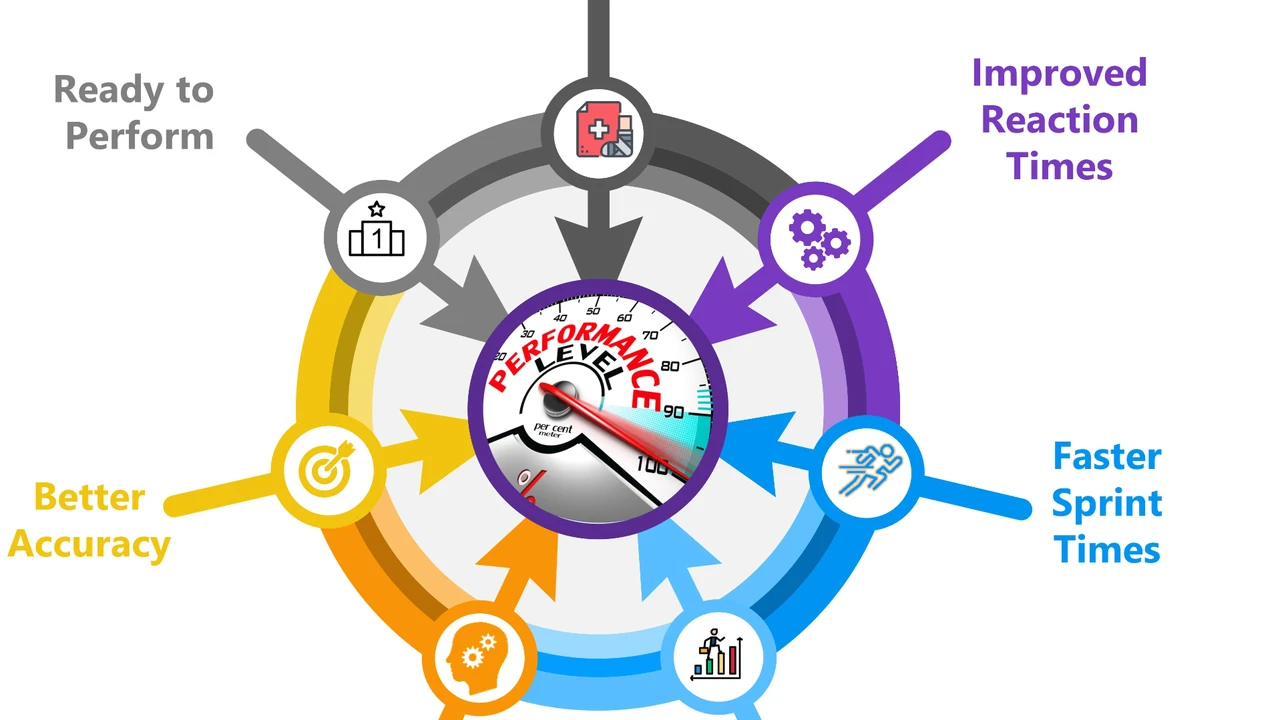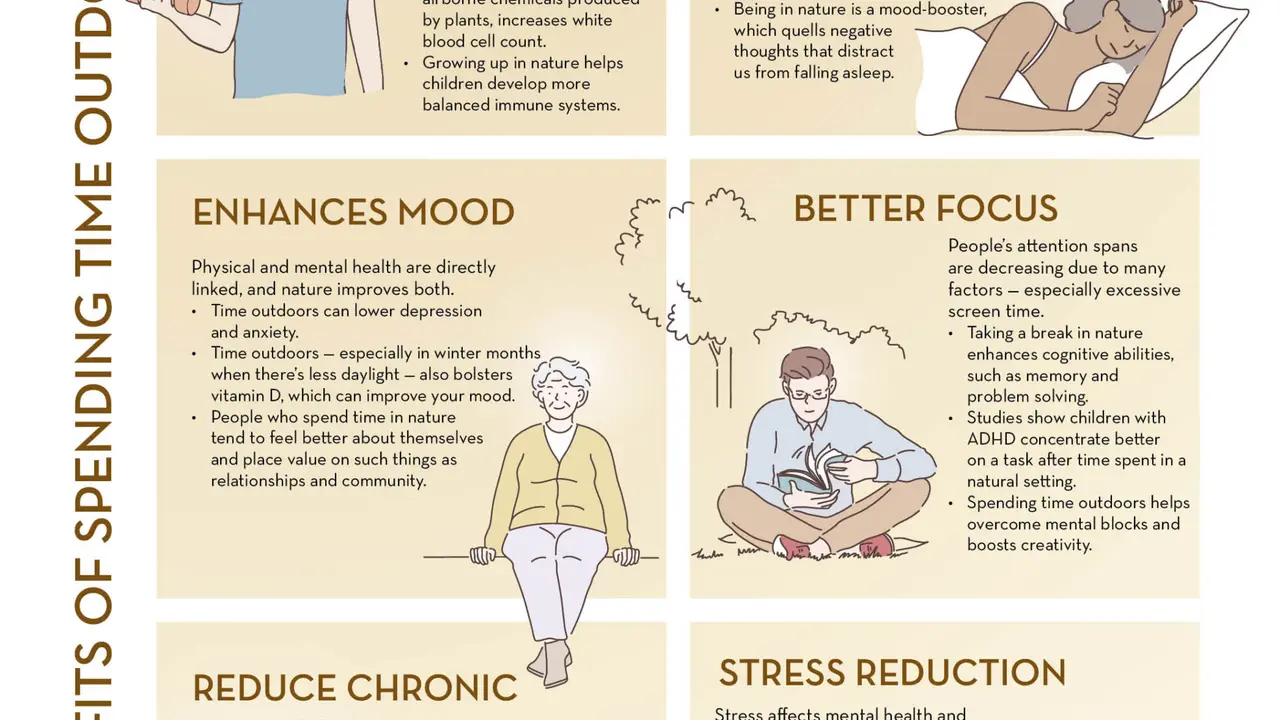Debunking Common Lifestyle Myths: Separating Fact from Fiction
Learn how to create a sustainable lifestyle and adopt eco-friendly practices. This guide covers essential tips for reducing your environmental impact. Contribute to a healthier planet and improve your well-being with sustainable living.

Understanding Sustainable Living What is Eco-Friendly Living
Okay, so what does it *really* mean to live sustainably? It's all about making choices that minimize our impact on the environment. Think about it as living in a way that doesn't deplete natural resources or harm ecosystems. Eco-friendly living focuses on reducing waste, conserving energy and water, and choosing products and practices that are less harmful to the planet. It's a journey, not a destination, and every little bit helps!
Reducing Waste and Recycling Tips for Waste Reduction
One of the biggest ways to live more sustainably is to drastically reduce waste. Here's how you can do it:
- Say No to Single-Use Plastics: This is a big one. Water bottles, straws, plastic bags – ditch 'em! Invest in a reusable water bottle, carry a tote bag for shopping, and politely decline straws at restaurants.
- Embrace Reusable Containers: Pack your lunch in reusable containers instead of plastic wrap or sandwich bags. They’re better for the environment and often more durable.
- Composting: Got a garden? Composting is a fantastic way to reduce food waste and create nutrient-rich soil for your plants. Even if you don't have a garden, many cities offer composting programs.
- Buy in Bulk: Reduce packaging waste by buying dry goods like rice, pasta, and nuts in bulk. Look for stores with bulk bins and bring your own reusable containers.
- Repair, Don't Replace: Before tossing something out, see if it can be repaired. Mending clothes, fixing appliances – it’s often cheaper and more sustainable than buying new.
Conserving Energy Energy Saving Tips at Home
Conserving energy not only helps the environment but also saves you money on your utility bills. Here are some easy ways to reduce your energy consumption:
- Switch to LED Lighting: LED bulbs use significantly less energy than traditional incandescent bulbs and last much longer.
- Unplug Electronics: Even when turned off, electronics can still draw power (this is called "phantom load"). Unplug chargers, TVs, and other devices when you're not using them.
- Use Energy-Efficient Appliances: When it's time to replace appliances, look for Energy Star certified models. They're designed to use less energy and water.
- Adjust Your Thermostat: Lower your thermostat in the winter and raise it in the summer. Even a few degrees can make a big difference in your energy consumption. Consider a smart thermostat like the Nest or Ecobee for automated energy savings.
- Wash Clothes in Cold Water: Hot water consumes a lot of energy. Washing clothes in cold water is just as effective and saves a significant amount of energy.
Water Conservation Water Saving Tips for Everyday Life
Water is a precious resource, and conserving it is essential for sustainable living. Here are some ways to reduce your water consumption:
- Take Shorter Showers: Long showers can use a lot of water. Aim for shorter showers (5 minutes or less) to conserve water.
- Fix Leaks: Even small leaks can waste a significant amount of water over time. Fix leaky faucets and toilets as soon as you notice them.
- Install Low-Flow Fixtures: Replace old showerheads and toilets with low-flow models. They use less water without sacrificing performance.
- Water Your Lawn Wisely: Water your lawn early in the morning or late in the evening to minimize evaporation. Consider using a sprinkler system with a timer.
- Collect Rainwater: Use rain barrels to collect rainwater for watering your garden.
Eco-Friendly Products Sustainable Product Recommendations and Comparisons
Choosing eco-friendly products is a great way to support sustainable businesses and reduce your impact on the environment. Here are a few product recommendations:
Bamboo Toothbrushes Sustainable Oral Hygiene
Plastic toothbrushes are a major source of plastic waste. Bamboo toothbrushes are a great alternative. The handle is biodegradable, and the bristles are often made from bamboo or nylon. Brands like Brush with Bamboo and Humble Brush offer excellent options.
- Brush with Bamboo: Known for their high-quality bamboo handles and biodegradable packaging. Around $5 per brush.
- Humble Brush: Offers a variety of bamboo toothbrushes for adults and children, with a focus on social responsibility. Around $4 per brush.
Reusable Food Wraps Beeswax Wraps vs Silicone Wraps
Ditch plastic wrap and opt for reusable food wraps. Beeswax wraps and silicone wraps are both excellent alternatives.
- Beeswax Wraps (Abeego, Bee's Wrap): Made from beeswax, cotton, and other natural ingredients. They're reusable, biodegradable, and perfect for wrapping fruits, vegetables, and sandwiches. Abeego and Bee's Wrap are popular brands. A set of three typically costs around $15-$20.
- Silicone Wraps (Stasher Bags, Food Huggers): Made from food-grade silicone. They're reusable, dishwasher-safe, and great for storing leftovers and snacks. Stasher Bags are versatile and can be used for a variety of purposes. A single Stasher bag can range from $10-$20 depending on the size. Food Huggers are designed to fit over cut fruits and vegetables, keeping them fresh for longer. A set of five is around $15.
Natural Cleaning Products Eco-Friendly Cleaning Solutions
Many conventional cleaning products contain harsh chemicals that are harmful to the environment and your health. Switch to natural cleaning products made from plant-based ingredients.
- Branch Basics: A concentrated cleaning solution that can be diluted to create a variety of cleaning products. It's non-toxic, biodegradable, and effective. The concentrate costs around $60, but it lasts a long time.
- Mrs. Meyer's Clean Day: Offers a range of plant-based cleaning products with pleasant scents. A bottle of Mrs. Meyer's multi-surface cleaner is around $4.
Reusable Shopping Bags Cotton vs Recycled PET Bags
Plastic shopping bags are a major environmental problem. Carry reusable shopping bags made from cotton, recycled PET, or other sustainable materials.
- Cotton Tote Bags: Durable and washable. Look for organic cotton for an even more sustainable option. A plain cotton tote bag is around $5-$10.
- Recycled PET Bags: Made from recycled plastic bottles. They're lightweight, durable, and easy to clean. A recycled PET shopping bag is around $8-$15.
Sustainable Clothing Brands Ethical Fashion Choices
The fashion industry has a significant environmental impact. Choose sustainable clothing brands that use organic cotton, recycled materials, and ethical production practices.
- Patagonia: Known for its commitment to sustainability and ethical labor practices. They use recycled materials and organic cotton in many of their products. Prices vary widely depending on the item.
- Eileen Fisher: Offers timeless designs made from sustainable materials like organic linen and recycled cashmere. Prices are generally higher, reflecting the quality and sustainability of the materials.
- Everlane: Focuses on transparency and ethical production. They offer a range of classic pieces made from sustainable materials. Prices are generally more affordable than Patagonia or Eileen Fisher.
Sustainable Transportation Reducing Your Carbon Footprint
Transportation is a significant source of greenhouse gas emissions. Here are some ways to reduce your transportation footprint:
- Walk or Bike: For short trips, walk or bike instead of driving. It's good for your health and the environment.
- Use Public Transportation: Take the bus, train, or subway instead of driving alone.
- Carpool: Share a ride with colleagues or friends.
- Drive an Electric or Hybrid Vehicle: Electric and hybrid vehicles produce fewer emissions than gasoline-powered cars. Consider models like the Tesla Model 3 (around $40,000), Toyota Prius (around $25,000), or Nissan Leaf (around $30,000).
Sustainable Gardening Eco-Friendly Gardening Practices
Gardening can be a sustainable activity if you follow eco-friendly practices:
- Use Organic Fertilizers: Avoid synthetic fertilizers that can pollute waterways. Use organic fertilizers like compost, manure, or bone meal.
- Compost: As mentioned earlier, composting is a great way to recycle food waste and create nutrient-rich soil for your plants.
- Water Wisely: Water your garden early in the morning or late in the evening to minimize evaporation. Use a watering can or a drip irrigation system to deliver water directly to the plants.
- Attract Pollinators: Plant flowers that attract bees, butterflies, and other pollinators.
- Choose Native Plants: Native plants are well-adapted to your local climate and require less water and fertilizer.
Supporting Local and Sustainable Businesses Shop Local
Supporting local and sustainable businesses is a great way to promote economic and environmental sustainability. Look for businesses that use sustainable practices and offer eco-friendly products.
- Farmers Markets: Buy fresh, local produce directly from farmers.
- Local Artisans: Support local artisans by buying handmade crafts and products.
- Sustainable Restaurants: Choose restaurants that use local and organic ingredients and minimize waste.
The Importance of Education and Advocacy Spreading the Word about Sustainability
Education and advocacy are crucial for promoting sustainable living. Share your knowledge with others and encourage them to make sustainable choices. Talk to your friends and family, share information on social media, and support organizations that are working to protect the environment.
Making Small Changes for a Big Impact Every Little Bit Counts
Living sustainably doesn't have to be all or nothing. Every small change you make can have a positive impact. Start with one or two of these tips and gradually incorporate more into your life. Remember, the key is to make sustainable choices that you can stick with long-term.
It's about progress, not perfection. So, go out there and start living a more sustainable lifestyle today!
:max_bytes(150000):strip_icc()/277019-baked-pork-chops-with-cream-of-mushroom-soup-DDMFS-beauty-4x3-BG-7505-5762b731cf30447d9cbbbbbf387beafa.jpg)






